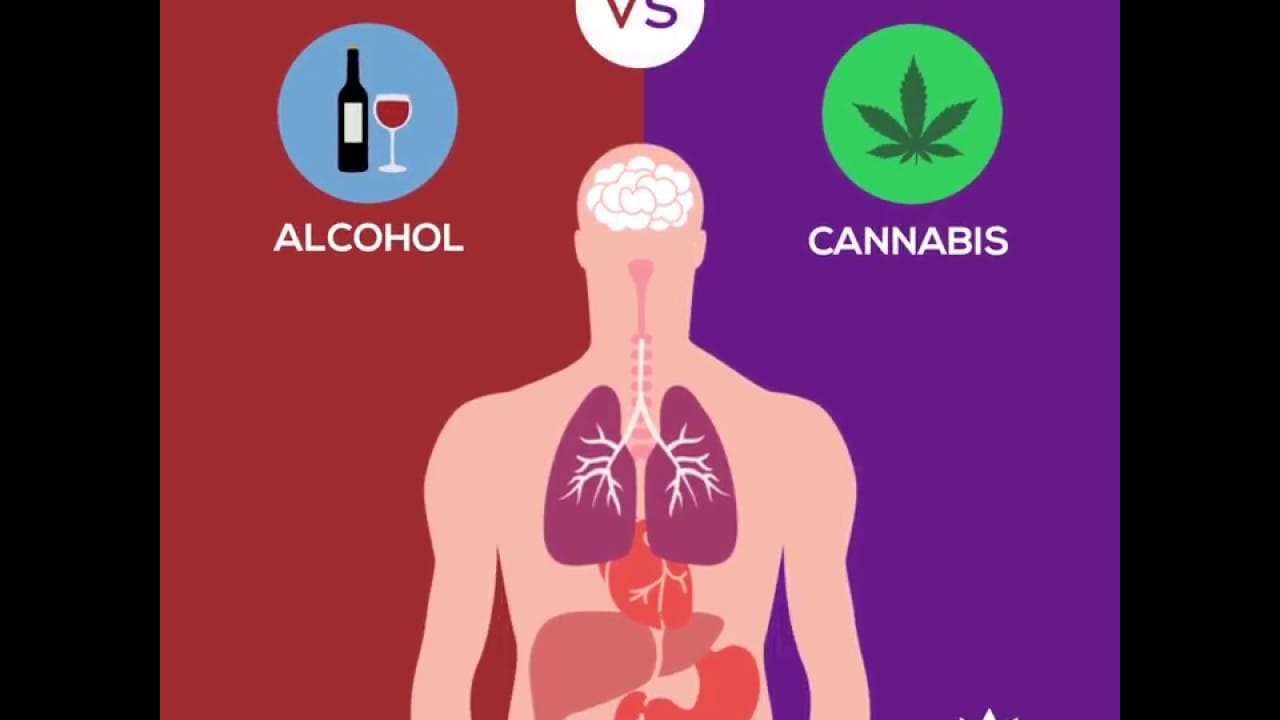Alcohol and cannabis have both occupied significant spaces in societal discussions, with opinions divided on their safety and health risks. As legalization trends for cannabis continue to grow, understanding the health implications of both substances is essential. This article aims to offer an objective analysis of alcohol and cannabis, evaluating which might be worse for your health.
Alcohol, a legal substance in most parts of the world, has been consumed for centuries. Its immediate effects include a sense of relaxation and euphoria. However, alcohol consumption, especially in excess, is well-documented to have numerous adverse effects on health. Chronic alcohol use is linked to liver diseases, including cirrhosis and liver cancer. It also increases the risk of cardiovascular diseases, such as hypertension and heart disease. Additionally, heavy drinking can lead to pancreatitis, a dangerous inflammation of the pancreas.
Alcohol’s impact on the brain is equally concerning. It can cause neurological damage, leading to conditions like Wernicke-Korsakoff syndrome, characterized by severe confusion and memory loss. Furthermore, alcohol impairs judgment, coordination, and reaction times, significantly increasing the risk of accidents and injuries. Long-term heavy drinking also correlates with mental health issues, including depression and anxiety.
Cannabis, on the other hand, has a different profile of effects. The active compounds in cannabis, known as cannabinoids, interact with the body’s endocannabinoid system. THC (tetrahydrocannabinol) is the primary psychoactive compound, responsible for the “high” sensation. While cannabis is often perceived as safer, it is not without its risks. Research suggests that regular, heavy cannabis use can impair cognitive function and may have a lasting impact on memory and learning, particularly when use begins in adolescence.
Cannabis use is associated with respiratory problems when smoked. Similar to tobacco, smoking cannabis can damage lung tissues and cause chronic bronchitis-like symptoms. There are also concerns about the potential for cannabis use to trigger or exacerbate mental health conditions such as schizophrenia and anxiety, particularly in individuals predisposed to these conditions.
The comparison between alcohol and cannabis also touches on their potential for addiction. Alcohol use disorder is a well-recognized condition, and withdrawal from alcohol can be life-threatening, requiring medical supervision. Cannabis dependence can also develop, though it is generally considered to present with milder withdrawal symptoms compared to alcohol.
Another important aspect to consider is the social and economic costs associated with each substance. Alcohol is implicated in numerous social issues, including domestic violence, road accidents, and workplace absenteeism. The economic burden of alcohol-related illnesses and accidents is significant, costing healthcare systems and societies billions annually.
Cannabis’s social impact is less severe in terms of immediate physical harm but still notable. Concerns include impaired driving and the potential normalization of use leading to increased consumption among youth. As cannabis legalization continues in various regions, understanding and mitigating these social risks is crucial.
In terms of potential health benefits, moderate alcohol consumption has been lauded for its possible heart health benefits, particularly with red wine. However, these potential benefits do not outweigh the risks associated with drinking. Cannabis is increasingly recognized for its therapeutic potential, particularly in managing chronic pain, reducing nausea in chemotherapy patients, and alleviating symptoms of multiple sclerosis.
In conclusion, both alcohol and cannabis have their own set of health risks and potential benefits. Alcohol’s risks are more thoroughly documented, and its impact on physical and mental health can be severe, particularly with heavy, chronic use. Cannabis, while often perceived as safer, can still pose significant risks, particularly in terms of mental health and cognitive function. Individuals should carefully consider the potential impacts on their health when choosing to use either substance.



